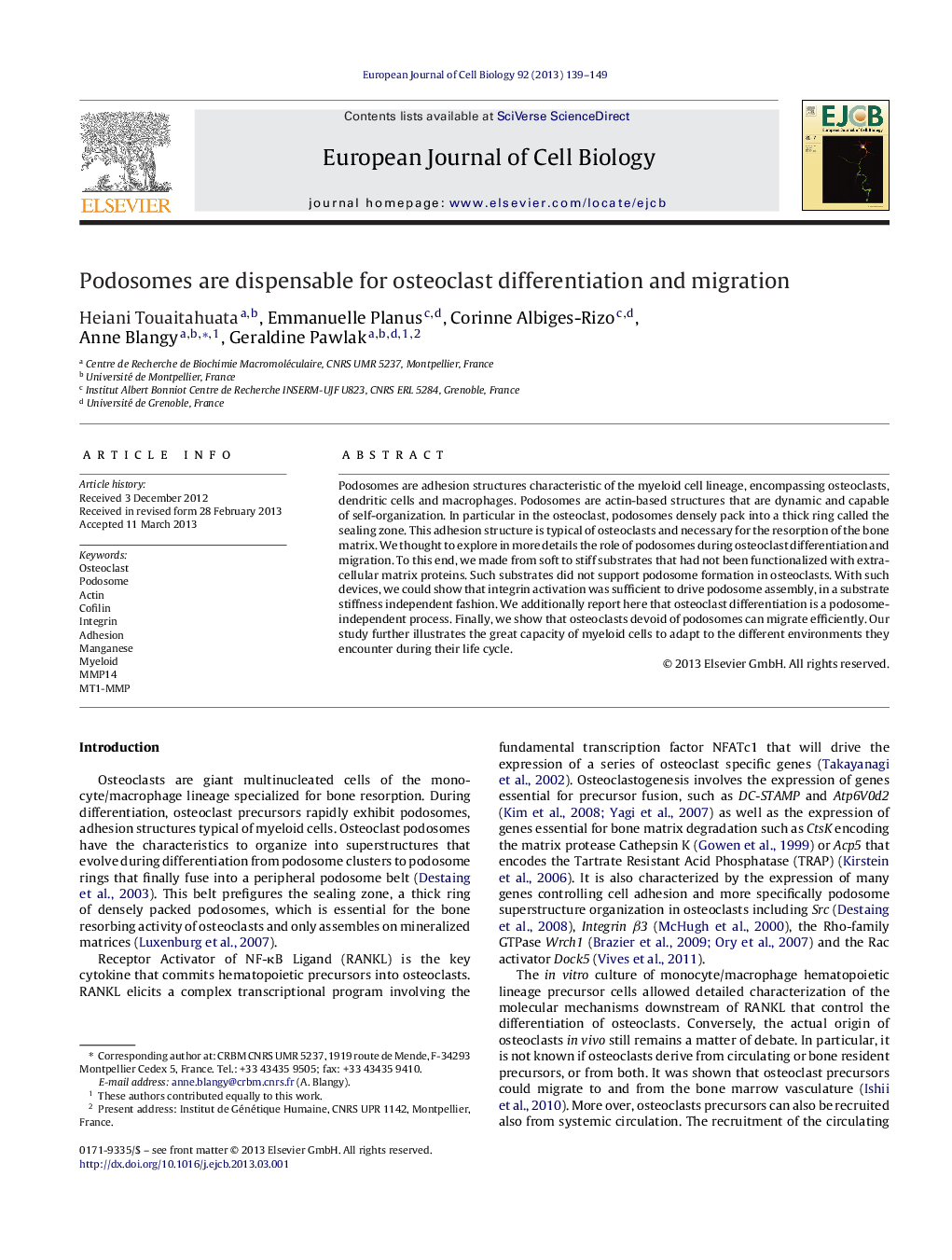| Article ID | Journal | Published Year | Pages | File Type |
|---|---|---|---|---|
| 2178408 | European Journal of Cell Biology | 2013 | 11 Pages |
Podosomes are adhesion structures characteristic of the myeloid cell lineage, encompassing osteoclasts, dendritic cells and macrophages. Podosomes are actin-based structures that are dynamic and capable of self-organization. In particular in the osteoclast, podosomes densely pack into a thick ring called the sealing zone. This adhesion structure is typical of osteoclasts and necessary for the resorption of the bone matrix. We thought to explore in more details the role of podosomes during osteoclast differentiation and migration. To this end, we made from soft to stiff substrates that had not been functionalized with extracellular matrix proteins. Such substrates did not support podosome formation in osteoclasts. With such devices, we could show that integrin activation was sufficient to drive podosome assembly, in a substrate stiffness independent fashion. We additionally report here that osteoclast differentiation is a podosome-independent process. Finally, we show that osteoclasts devoid of podosomes can migrate efficiently. Our study further illustrates the great capacity of myeloid cells to adapt to the different environments they encounter during their life cycle.
